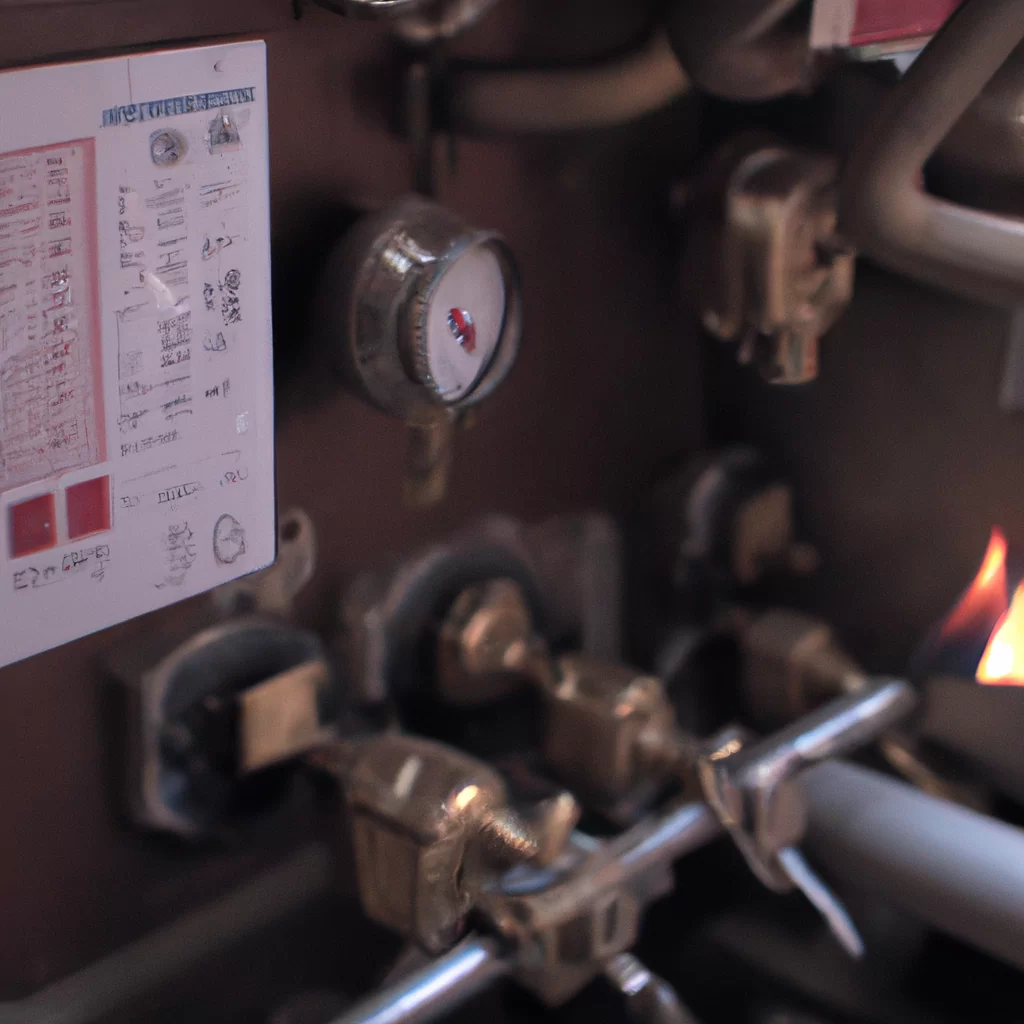How does a gas furnace work?


How does a gas furnace work?
Gas furnaces have been around for decades and are a popular choice for heating homes across the world. They are efficient, reliable, and offer a steady supply of heat, making them an essential component of any heating system. In this article, we will explore how a gas furnace works, including how it heats your home, how it integrates with your HVAC system, furnace installation, furnace repair, and furnace maintenance.
How Does a Gas Furnace Work?
A gas furnace works by using natural gas to create heat. The furnace pulls in cold air from your home’s return ducts and passes it over a heat exchanger. The heat exchanger warms up the air, which is then distributed throughout your home via the supply ducts. The furnace then expels the exhaust gases through a flue vent, which removes the toxic gases from your home.
Here’s a step-by-step process of how a gas furnace works:
1. Thermostat signaling: The first step in the process is when the thermostat signals the furnace to turn on. The thermostat is responsible for maintaining the desired temperature in your home, and when the temperature drops below the set point, it signals the furnace to turn on.
2. Combustion: Once the furnace receives the signal, it opens a valve to allow natural gas to flow into the burner. The burner ignites the gas, creating a flame that heats up the heat exchanger.
3. Heat exchange: As the heat exchanger heats up, the cold air from your home’s return ducts is blown over the heat exchanger. The warm air is then distributed throughout your home via the supply ducts.
4. Exhaust: The combustion process produces exhaust gases, which are expelled through a flue vent. The flue vent removes the toxic gases from your home, ensuring that the air you breathe is safe and healthy.
Integrating a Gas Furnace with Your HVAC System
A gas furnace is just one component of your HVAC system. The HVAC system includes your furnace, air conditioner, ductwork, and thermostat. All these components work together to ensure that your home is comfortable and energy-efficient.
When installing a gas furnace, it’s essential to ensure that it integrates seamlessly with your HVAC system. Your HVAC technician will need to size your furnace correctly and ensure that the ductwork is appropriately sized to distribute the warm air throughout your home.
Furnace Installation
Installation of a gas furnace requires expertise and experience. A professional HVAC technician can ensure that the furnace is installed correctly, and all components are working correctly. During installation, the technician will size the furnace correctly and ensure that the ductwork is appropriately sized.
Furnace Repair
Gas furnaces require regular maintenance to ensure they are working correctly. Regular furnace maintenance can prevent costly repairs and extend the life of your furnace. However, even with regular maintenance, things can go wrong with your furnace. If you notice any of the following signs, you may need furnace repair:
– Strange noises coming from your furnace
– Your furnace is not producing enough heat
– Your furnace is cycling on and off frequently
– Your furnace is emitting a strange odor
Furnace Maintenance
Regular furnace maintenance is essential to ensure that your furnace is working correctly and efficiently. Here are some tips for maintaining your gas furnace:
– Change your furnace filter regularly.
– Keep the area around your furnace clean and free of debris.
– Schedule annual furnace maintenance with a professional HVAC technician.
– Program your thermostat to ensure that your furnace is not working unnecessarily.
Conclusion
A gas furnace is an essential component of your heating system. It works by using natural gas to create heat, which is distributed throughout your home via the ductwork. Integrating a gas furnace with your HVAC system requires expertise and experience. Regular furnace maintenance can prevent costly repairs and extend the life of your furnace. If you notice any signs that your furnace may need repair, contact a professional HVAC technician immediately.
Recent Posts
How do I create an engaging and informative online quiz or assessment?
Creating an engaging and informative online quiz or assessment can be a powerful tool for… Read More
What are the most effective methods for managing and reducing work-related stress in the hospitality industry?
Work-related stress is a common issue in the hospitality industry, where employees often face long… Read More
How can I improve my assertiveness and communication skills in a leadership position?
In a leadership position, assertiveness and effective communication skills are crucial for success. Being able… Read More
What are the key elements of a successful employee recognition and rewards program?
Employee recognition and rewards programs play a crucial role in motivating and engaging employees, as… Read More
How do I effectively manage and respond to customer feedback and reviews?
Customer feedback and online reviews play a crucial role in shaping a company's reputation and… Read More
What are the best strategies for effective time management as a stay-at-home parent?
Effective time management is crucial for stay-at-home parents who juggle multiple responsibilities on a daily… Read More